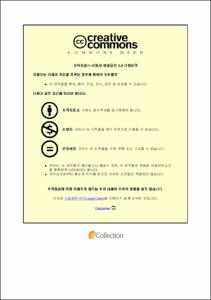박용철의 시에 나타난 시대인식
- Abstract
- This study has inquired aspect of age recognition of Park Yong-Cheol’s poetry. In existing discussion, Park Yong-Cheol was estimated as a romanticist. However, Park Yong-Cheol’s the romantism literary point of view seems to access to the reality. He had already realized the situation of literature and politics in 1930s. He emphasized the literature effect on society. This point would be a revelation of racial consciousness as a literary men who knew how despair world was.
Park’s literature emphasized ‘the infection of emotion’ as a social pragmatism.
‘the infection of emotion’, as he said, was a method for leading people’s unity and sympathy, and also through expanding emotion, he intended to make people’s regimentation.
Park Yong-Cheol concentrated on a language of poetic diction to get a sympathy of people’s emotion. He emphasizes poetic transformation of experience, and a poem is the world of experience. The experience he mentions is related to reality. For leading people’s sympathy and unity through ‘infection of emotion’, emphasizing true experience supports the effect of spreading literature as social utility.
Park Yong-Cheol shows his strong consciousness about Japanese colonial era with asserting establishing Korean Language and Korean literature identity. He requested independence of Korean literature while making Korean culture on an equal footing with Japanese culture in the time when Korean literature was about to degenerated into Japanese local literature. We can look Park Yong-cheol’s one of his mind who had already known that he must have kept his language and literature although his country was under colonial rule.
Park Yong-Cheol who had a plan for finding his ethic identity and arousing people’s emotion through establishing Korean literature and spreading Korean language found the essence of Korean through dialect and archaic word. When he chose Korean dialect under colony time as a literature language, the effect was the cause which can make a wide bond of sympathy, with having planning formation of a national literature.
For looking over aspect of age recognition of Park Yong-Cheol’s poetry, his poetry’s world is divided into ① Losing home and restoration sense. ② overcome despair and consciousness of vagrancy ③ use a dialect and archaic word as national language. At that time, his awareness about the world was his national reality when Korean was plundered by Japanese and lost everything to them. However, his pure lyricism was made up of people emotion. He tried to get a sympathy through restoring will about losing his country. With this, We can infer that he tried to pursuit fate communal solidarity.
There are some poems which show Korean will to overcome their despair in reality. This will turns up consciousness of vagrancy, but the consciousness of vagrancy doesn’t come from personal escape. This is part of realizing the era, imagining an ethnic community. In case of Park Yong-Cheol, he actually was not against Japanese behaviorally and directly. As his resistance appears in his inner side not external one, we could know harmonizing his purity with the lyricism at his poetry that he tried to escape from tragic reality under Japanese colonial era.
In the Japanese colonial period, His awareness of poetic diction is through Korean Language. By enhancing his language, the dialect and the archaic word which he used in his poetry are for arousing his racial emotion. This is coincided with the ideals of literature of ‘Simunhakpa’ which is ‘the completion of ethnolinguistics’, and also could be intention to promote the racial spirit. Through the ideal like context, Park Yong-Cheol suggests that it is possible to exist the great epic, considered as ethnic group, in the background of his pure literature. I don’t mean that we should consider Park Yong-Cheol as a fighter who was strongly against Japanese colonial era. The way of writing Park Yong-Cheol chose brings out a meaningful critical mind about situation Korean Language was in then and true mean of Korean literature, and it is revelation of national consciousness which has pitiful looking on ethnic group’s reality.
- Issued Date
- 2016
- Awarded Date
- 2016. 8
- Type
- Dissertation
- Publisher
- 부경대학교 대학원
- Affiliation
- 부경대학교 대학원
- Department
- 대학원 국어국문학과
- Advisor
- 조동구
- Table Of Contents
- Ⅰ. 서론 1
1. 연구의 필요성 및 목적 1
2. 선행 연구 검토 3
3. 연구 방법 및 범위 13
Ⅱ. 1930년대 식민정책과 순수문학 24
1. 일제의 식민정책과 조선어 24
2. 순수문학의 대두 27
Ⅲ. 박용철의 순수시론과 언어의식 31
1. 순수시론의 내용과 특성 31
2. 민족어 완성의 사명 50
Ⅳ. 박용철의 시에 나타난 시대인식 66
1. 고향상실과 복원의식 66
2. 절망극복과 유랑의식 81
3. 민족어로서의 방언과 고어 사용 101
Ⅴ. 민족어의 완성과 민족의식의 고양 118
Ⅵ. 결론 134
* 참고문헌 140
- Degree
- Master
- Files in This Item:
-
-
Download
 박용철의 시에 나타난 시대인식.pdf
기타 데이터 / 1.65 MB / Adobe PDF
박용철의 시에 나타난 시대인식.pdf
기타 데이터 / 1.65 MB / Adobe PDF
-
Items in Repository are protected by copyright, with all rights reserved, unless otherwise indicated.